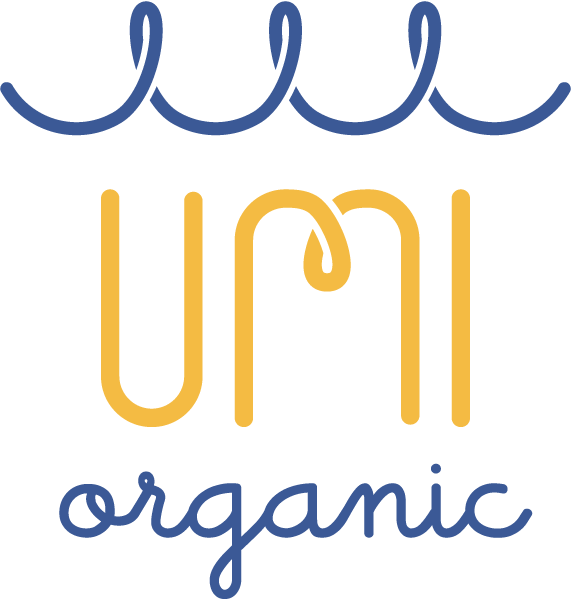We are so excited to announce our second annual Kobe + Portland Yakisoba Project sponsored by the City of Kobe to showcase the magic of yakisoba! This year we are telling the history of yakisoba sauce, which was invented in Kobe, to Portlanders through cook-at-home kits and recipes. “It’s really fun to partner with Umi Organic to bring the history of yakisoba to life,” our dear friend Kyoko Shinohara of the Kobe International Club told us. “We share a collaborative spirit.” Dokyuun. (We love it!)
These kits will be available for sale around Portland through February 28, 2021 (or until sold out) at Fulamingo, milk glass mrkt, MilkRun, and Wellspent Market. Learn more about the kits and their contents on our events page.
A Brief Incomplete History of Yakisoba
Yakisoba is a cheap, popular Japanese street food, often also cooked in the home, that descends from Chinese chow mein noodles, but with an unusual twist: in 1885, the Hanshin sauce company in Kobe created the first Japanese-style Worcestershire sauce. The founder had studied at Lea & Perrins in England and took the knowledge he gained, added his own creative spin, and launched an industry making what is known in Japan simply as so-su or sauce. This includes yakisoba sauce, tonkatsu sauce, okonomiyaki sauce, and more.
What we know of as yakisoba today—a heap of chewy wheat noodles in a sweet and tangy soy- and fruit-based sauce with cabbage, carrots, sometimes bean sprouts and meat—first appeared in street stalls just after the turn of the 20th century, but it was popularized in the 1930s and 40s through military canteens looking for new, filling foods they could serve soldiers. In a natural cycle, as these dishes went back into public space, Japan’s strong culinary regionalism reshaped them so that today you find regional variations of yakisoba.
Food culture is living history, and everyone is part of making it. Join us by taking one of our yakisoba recipes and making it your own!
What is Doro Sauce?
In the 1930s, when Kobe’s sauce makers would decant their sauce, they would find a layer of concentrated sludge at the bottom of the barrel. They called this doro, which means mud in Japanese. This doro was thick, less sweet, spicy, and intense. Rather than waste it, sauce makers would provide this “mud” to restaurants in Kobe for free. They never intentionally manufactured doro sauce; they would simply scrape it from their barrels. (Tip: You can tell whether an okonomiyaki restaurant in Kobe or Osaka is legit if a container of Doro sits next to their teppan grill.) Beginning in 1948, the Oliver Sauce company, who created the first tonkatsu sauce, began selling their doro sauce more widely. Over the decades, Oliver has continued to make tonkatsu and okonomiyaki sauce the old fashioned way, so they end up with doro on their hands. Other companies throw it away or use modern mechanized methods that don’t create this bi-product, but Oliver sells this valuable mud in limited supply.
HOW TO USE DORO SAUCE
Like hot sauce meets A1 steak sauce, doro is intense but wonderful! A little goes a long way. It’s often used to finish a dish or as an additional note with another sauce. For example, you can add a spoonful or two to yakisoba, Japanese curry, or fried rice. You can use it as a marinade for BBQ or drizzle a tiny bit on a fried egg. Here, we will show you how to use a bit of doro to enliven yakisoa.
Love food? Visit Kobe!
The city of Kobe has a rich food history that is continuing through the present with long-established family-owned businesses still producing the highest quality products and a new vanguard of makers at the top of their game. The Kobe Farmers Market is a vision.
Kobe is located in the Western part of Japan. It was one of the first cities to open trade after 1853 when the United States forced Japan to end its two-century-long policy of isolation. Kobe is the namesake of Kobe beef as well as the site of the largest sake production in Japan. The city is surrounded by nature and farmland, and one of Japan's oldest hot spring resorts, Arima Onsen, sits nearby.
Learn more about KOBE at https://plus.feel-kobe.jp/en/
Love Kobe? Join the Club!
The ongoing passion for food has created a connection between Portland and Kobe, with delegations traveling to and from to share and learn. The latest chapter in this friendship is the Kobe International Club PDX, which brings together food artisans from both cities to blow people’s minds with their collaborations.
Whether you are a food artisan or simply a lover of good food, please join the Kobe International Club! http://facebook.com/KICPDX


